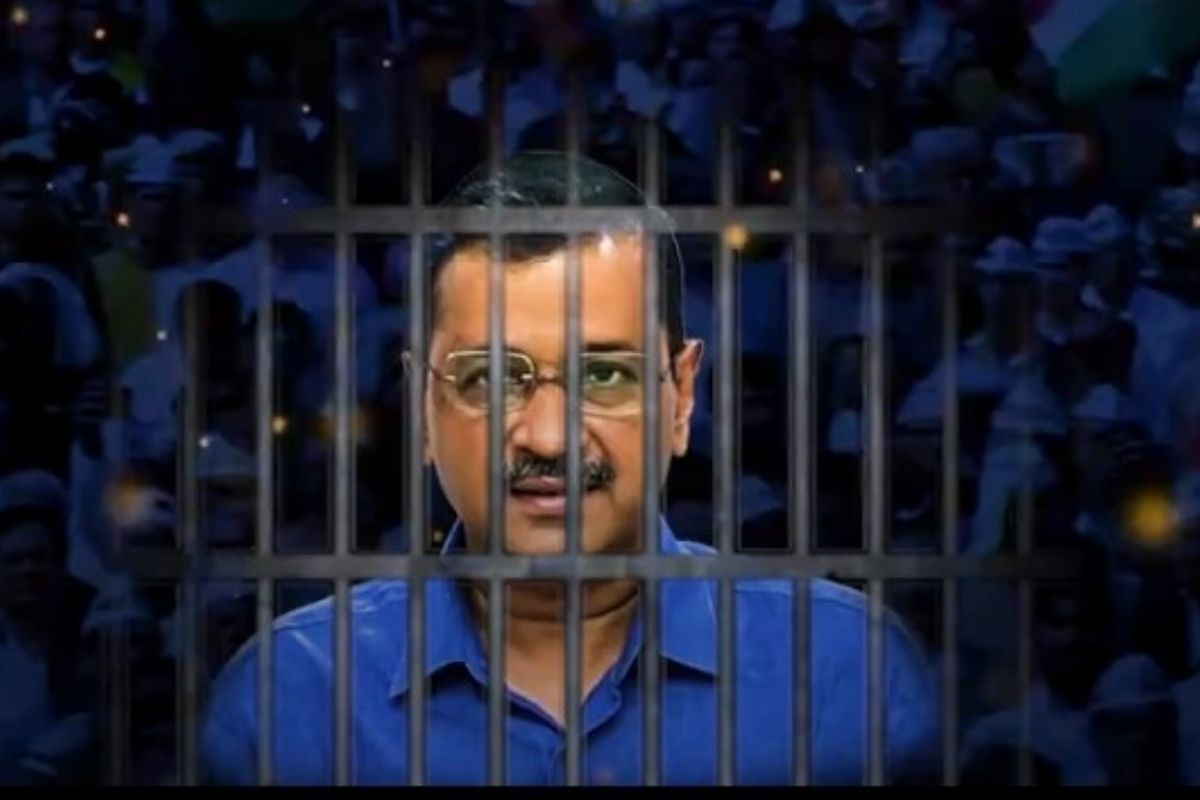ED restitutes property worth Rs 13.58 cr to victims in a fake remittances case
As per the federal anti-money laundering agency's investigation, huge amounts were remitted to various companies based in Hong Kong, China and Dubai.
The Enforcement Directorate (ED) has opposed Delhi Chief Minister Arvind Kejriwal’s plea against his arrest and subsequent remand, stating that it is based on material in possession of the agency.

File Photo
The Enforcement Directorate (ED) has opposed Delhi Chief Minister Arvind Kejriwal’s plea against his arrest and subsequent remand, stating that it is based on material in possession of the agency. The ED highlighted Kejriwal’s repeated avoidance of summons, non-cooperation with the investigation, and destruction of evidence. Furthermore, the agency emphasised that being a politician, the Chief Minister could not claim different treatment merely because Lok Sabha elections are going on.
In an affidavit filed by the Enforcement Directorate (ED) in response to the notice issued by the top court on 15 April regarding Kejriwal’s plea against his arrest and subsequent remand, the anti-money laundering agency has said that the Delhi Chief Minister avoided interrogation by not remaining present before the investigating officer despite being summoned nine times. The ED emphasised that this alone necessitated his arrest, alongside the material in possession of the investigating officer regarding Kejriwal’s involvement in the alleged scam.
Advertisement
Stating that Kejriwal has been “arrested bonafide” and not for any malafide or extraneous reasons, the Enforcement Directorate said: “It is categorically denied that the arrest was mala fide.”
Advertisement
Responding to Kejriwal’s contention that his arrest was an assault on the ‘tenets of democracy” based on “free and fair elections” and “federalism”, and to disable him from campaigning in the ongoing general election to Lok Sabha, the Enforcement Directorate in its affidavit says, “The arrest of a person, however high he may be, for the commission of offence based on material, can never violate the concept of free and fair elections…. Treating a politician differently from an ordinary criminal in a matter of arrest would amount to arbitrary and irrational exercise of power of arrest which would violate the principle of equality enshrined under Article 14 of the Constitution.”
The agency in its affidavit said that the investigation of this liquor scam has to be seen in the background of “large-scale destruction of evidence”.
However, the ED claims that it has been able to “recover key evidence” which “directly reveals” the role of Kejriwal in the process and activities relating to the proceeds of the crime.
“A total of approximately over 170 mobile phones were changed/destroyed by 36 persons (accused and other persons involved) during the period of the scam and the subsequent exposure of the Delhi Excise Policy of 2021-22 to the public. In this manner, the crucial digital evidence of the scam and money trail have been actively destroyed by the accused and other persons involved in this scam. Despite such active and criminal destruction of evidence, the agency has been able to recover key evidence which directly reveals the role of the petitioner in process and activities relating to proceeds of crime,” the agency has said in its affidavit.
To buttress its point on the destruction of digital evidence, the ED stated: “The conclusion of the destruction of mobile phones is based on the fact that despite intensive searches conducted by the ED, these mobile phones were not recovered. Furthermore, upon examination of these persons, they were either unable to produce the phones or presented them in a completely or significantly formatted state.”
The Enforcement Directorate has further claimed that Kejriwal has not been cooperating with the investigation while in custody. “For the purpose of investigation, Kejriwal was asked to provide passwords to his mobile phones during the search conducted on March 21, 2024. Subsequently, during his custody with the ED, the same request was made again, and his reply was recorded in his statement, but Kejriwal refused to share the password. Even his statements during custody revealed that despite being confronted with evidence, the petitioner chose to give completely evasive answers.”
Kejriwal has approached the top court challenging the Delhi High Court’s April 9, 2024, order rejecting his plea against his arrest by the ED and the subsequent remand. The top court had asked the Enforcement Directorate to respond to Kejriwal’s plea and posted the matter for hearing in the week commencing from April 29, 2024.
In his plea against the High Court order, Kejriwal has contended that his arrest after the announcement of the general election is “motivated by extraneous considerations”. Describing his arrest as “motivated”, Kejriwal has contended that a sitting Chief Minister has been arrested in the middle of an election cycle, especially after the announcement of the schedule of the 2024 Lok Sabha elections.
The petition by Kejriwal against the High Court order says that the statements and material relied upon by the ED against him were in its possession for the last nine months but why it acted when general elections were on.
These statements relied upon as grounds of arrest were recorded by the ED from December 7, 2022, till July 27, 2023, and subsequently no further material has been collected against Kejriwal, states the petition.
“Moreover, such statements and material were in possession of the Enforcement Directorate for the last nine months and still the arrest has been made illegally in the middle of the 2024 general election,” says the petition by Kejriwal.
The petition says that Kejriwal’s arrest also constitutes an “unprecedented assault on the tenets of democracy” based on “free and fair elections” and “federalism”, both of which form significant constituents of the basic structure of the Constitution.
Advertisement